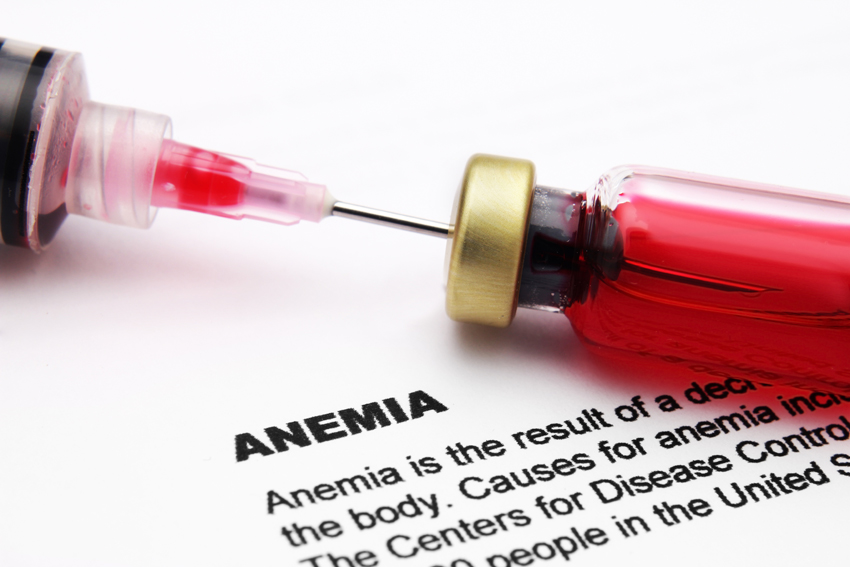New Discovery Could Lead to Treatments for Resistant Anemia

Anemia occurs when the body is unable to produce an adequate number of red blood cells. Needle image via Shutterstock.
Researchers from the Cambridge-based Whitehead Institute may have found a way to make drug resistant anemia less resistant and less miserable.
Most types of anemia can be reversed by a hormone called erythropoietin. However, there are certain types of anemia that are untreatable because they don’t respond to that hormone. Patients with those types of anemia must take alternative glucocorticoid drugs that cause negative side effects like stunted growth, problems with eye sight, and immune system deficiencies. So if you have a type of anemia that doesn’t respond to traditional treatments, your options are limited.
According to a new study published in the journal, Nature, researchers have identified a key target protein of those glucocorticoid drugs, which could change the way that doctors treat patients with anemia.
In a recent report, the Whitehead Institute explained the discovery:
“This research is medically important and we are using it to find a better way to increase the production of red blood cells for these patients,” Harvey Lodish, a Whitehead Institute Founding Member and biology professor at MIT, said. “It is also a new insight into how self-renewal in stem cells can be controlled, and a new way to think about how we can use an RNA binding protein to maintain stem and progenitor cells.”
By identifying this new protein, researchers may be able to use the protein alone in new treatments that would come without the negative side effects that patients with resistant anemia have come to expect.


